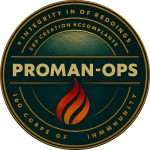Community Dispute Management
What is Community Dispute?
A Community Dispute means any action, suit or proceeding between or among the Parties arising in connection with any disagreement, dispute, controversy or claim arising out of or relating to an Agreement or any related document and/or work practices.
The types of disputes dealt with by courts can be broadly divided into two types: criminal cases and civil cases. These two types are dealt with quite differently and different processes and approaches apply. For example, there is a difference in who ‘prosecutes’ the case, as well as in the standard of proof and in the outcomes if the case is proven.
Criminal cases
Criminal cases involve a person being prosecuted by the police or a government prosecuting agency, such as the Director of Public Prosecutions, on behalf of the State for an offence against the law. If the court finds a person guilty of a crime, the court has the power to punish the offender by imposing a sentence (or punishment), such as a fine, a community service order, bond or custodial sentence (imprisonment). The law generally sets a maximum penalty for the offence, and the judge selects a penalty that is within the scope of the maximum penalty and that is appropriate to the criminality involved.
There are two types of criminal offences:
- summary offences – these are generally less serious offences that are usually dealt with by a magistrate of the Local Court and are punishable by a fine or imprisonment for up to two years; and
- indictable offences – are generally more serious offences that are usually dealt with by a judge and jury of the District Court or the Supreme Court and are punishable by imprisonment for more than two years.
Civil cases
A civil case involves a dispute between people (or between a person and the government) about the rights or liabilities of the people or organisations involved. A civil case usually involves one person seeking a remedy of some kind from another person to resolve a dispute between them.
Examples of areas of law that are classified as civil law are:
financial issues – such as bankruptcy or banking disputes, housing, defamation, family law, employment law.
In civil cases, each person involved in the case (generally, each person whose rights or liabilities are an issue in the case) is called a ‘party’ to the case. The party who makes a claim or commences the case is generally called ‘the plaintiff’, but in some types of cases may be called ‘the claimant’ or ‘the applicant’. The party defending themselves against the claim is generally called the ‘defendant’ or ‘respondent’. If a party appeals against the court’s decision, the party making the appeal is called the ‘appellant’ and the party denying or arguing against the appeal is called the ‘respondent’.
Our manner of Operations
When representing companies, the aim of engagement with groupings stating they represent
local communities, is to determine if there is a criminal intend toward the developer and
appointed contractors. The following activities need to be present and associated in order to
determine criminal activities.
Harassment
means directly or indirectly engaging in conduct that the respondent knows or ought to know
(a) causes harm or inspires the reasonable belief that harm may be caused to the complainant or a
related person by unreasonably
following. watching. pursuing or accosting of the complainant or a related person, or loitering outside
of or near the building or place where the complainant or a related person resides, works, carries on
business, studies or happens to be;
1) engaging in verbal, electronic or any other communication aimed at the complainant or a
related person, by any means, whether or not conversation ensues;
2) or sending, delivering or causing the delivery of letters, telegrams, packages, facsimiles,
electronic mail or other objects to the complainant or a related person or leaving them where they will
be found by, given to. or brought to the attention of, the complainant or a related person;
“harm”, means any mental, psychological, physical or economic harm.
Intimidation
To prohibit certain forms of intimidation and to provide for matters connected therewith.
(1) Any person who without lawful reason and with intent to compel or induce a particular person to do
or to abstain from doing any act or to assume or to abandon a particular standpoint
(a) assaults, injures or causes damage to that person or any other person; or
(b) in any manner threatens to kill, assault, injure or cause damage to that person or any other
person, shall be guilty of an offence and liable on conviction to a fine not exceeding twenty thousand
rand or to imprisonment for a period not exceeding ten years or to both such fine and such
imprisonment.
Public violence
It consists of the unlawful and intentional commission, together with several people, of an act/s which
assume serious dimensions, and which are intended forcibly to disturb public peace and tranquillity or
to invade the rights of others.
Extortion
It consists of taking from another some patrimonial or non-patrimonial advantage by intentionally and
unlawfully subjecting that person to pressure which induces him or her to submit to the taking.
How we work
When it comes to community disputes, we evaluate the situation and determine the root cause of the problem and compile all the evidence required before taking action to ensure that we have all the facts on the table. Once that is done then we take the necessary steps to resolve any issues based on if the dispute is a civil or criminal case.
